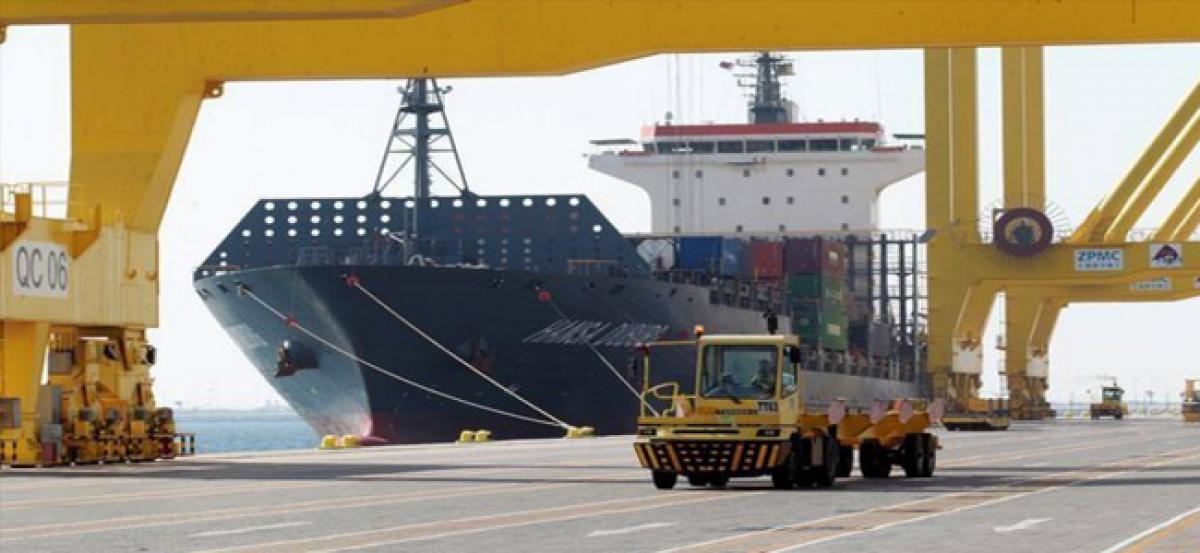Live
- Welfare hostels shut as bills pile up
- CM Revanth Reddy Slams BJP Leaders Over Inaction
- Minister Ponguleti visits Basara temple
- Ashutosh Gowariker to lead International Jury at IFFI 2024
- The global challenges of greener aviation
- Shreyas Media secures exclusive advertising rights for ‘MahaKumbh Mela 2025’
- Experience the journey of art
- Seven iconic ghats undergo makeover for Mahakumbh
- Smog engulfs capital with ‘severe’ air quality
- Slur against HDK wrong, Zameer will be corrected: K’taka Cong
Just In

Qatar\'s imports recovered only slightly in July after plunging in June, government data released on Thursday showed, suggesting the country\'s economy is still suffering from sanctions imposed by other Gulf states.
DUBAI: Qatar's imports recovered only slightly in July after plunging in June, government data released on Thursday showed, suggesting the country's economy is still suffering from sanctions imposed by other Gulf states.
Saudi Arabia, the United Arab Emirates and Bahrain cut diplomatic and transport ties with Qatar on June 5, accusing Doha of supporting terrorism, which it denies.
The closure of the Saudi border with Qatar and disruption to shipping routes via the UAE slashed Qatar's imports by 37.9 percent in June compared with May, forcing Doha to scramble to arrange new shipping routes and import some goods by air.
Thursday's figures showed Qatar is still far from restoring its imports to normal. Imports recovered by only 6.3 percent month-on-month to 6.24 billion riyals ($1.71 billion) in July; they were 35.0 percent below their level in July 2016.
Much of the disruption appears to be to big-ticket items. Imports of aircraft parts were down 40.5 percent from a year ago at 292 million riyals in July. The diplomatic crisis has deprived Qatar Airways of two of its biggest markets, Saudi Arabia and the UAE.
Incoming shipments of equipment and building materials for Qatar's big infrastructure projects may also have slowed in some cases. Imports of gas turbines dropped 19.8 percent from a year ago to 328 million riyals.
Many dairy products and other perishable foods used to be imported across the Saudi border. Although there are no reports of food shortages in Qatar, disruption to imports appears to be pushing up food and drink prices, which rose 4.2 percent in July from June, data released last week showed.
Thursday's trade figures suggested the sanctions are not affecting Qatar's natural gas exports - July exports of petroleum gases and other gaseous hydrocarbons rose 7.8 percent from a year ago - and are no longer slowing other exports much.
As a result, Qatar's trade surplus expanded 78.1 percent from a year earlier to 11.91 billion riyals in July, although it edged down 4.8 percent from the previous month.
Analysts think the sanctions damage should ease in coming months as new shipping routes develop. Qatar Navigation launched a direct Qatar-Turkey service this week after starting a container service to Kuwait last week; construction of a food processing and storage facility at Qatar's Hamad Port received $440 million of bank financing this week.
A Reuters poll of analysts published last month found them still expecting the Qatari economy to be one of the region's strongest performers in 2017 and 2018.

© 2024 Hyderabad Media House Limited/The Hans India. All rights reserved. Powered by hocalwire.com







